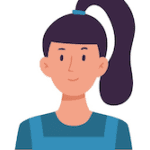Every career change is different and is unique to the individual’s circumstances, but there are usually common themes people can relate to. So I hope my story can give you some direction on how you want to approach your career pivot into Data Science. At the time of my career transition, I was a new immigrant to Canada and also new to Toronto without knowing anyone. I knew I would be disadvantaged in finding a job because most posted jobs are only the tip of an iceberg and I would need extensive networking to have a good chance of landing an offer. So after finishing the WCD’s Analytics Bootcamp in summer 2020, I decided to join the mentorship program.
Prior to the Mentorship Program
Before I joined the mentorship program, I had reached out to some alumni for stories of their experience with the program. These people had graduated from the bootcamp, joined the mentorship program, and landed a job, so they are success stories I would like to learn from. I also like to listen to people’s career transition stories, see the common themes among the processes, listen to their advice, and chart out my most viable path to get to where I want to be. This is exactly what I did before I joined the program: to do my own due diligence. I asked a lot of questions with the program head to fully understand what I would get out of it as well as what is expected of me.
I gave it some serious thought, weighed the pros and cons, and came to realize that the program would be worth it. Because given that on average, it would take a job seeker several months (good case scenarios) with lots of rejections before they can have a chance of landing a job. I figured with the mentors’ help, if I could reduce the time of job seeking by a couple of months (by finding a job quicker), and coupled with the potential of finding a good-paying and suitable job, that in itself would have almost paid for the investment. After much deliberation, I decided to sign up which was a pretty straight forward process. It involved a test to gauge my level of proficiency with the common and important tools in Data Science/Analytics like Python, SQL, Tableau, etc. I passed the test, and then it was simply filling out paperworks.
Mentorship Program: Support
I came into the mentorship program with the mindset that it would take me 2-3 months to land a job based on historical cases and my own research. There were 3 mentors who took turns helping me: one primary, and two secondary. I was paired with a working professional, who is also a data scientist, as a primary mentor. This was great because he knew what he was talking about and had industry knowledge and insights. The other two secondary mentors as supporting roles in my journey were the program head and another senior professional. All in all, I received the most support from my primary mentor and the program head.
First, I had a one-on-one call with each of the mentors to go over the expectations from both sides. That was also the opportunity for me to get to know my mentors and vice versa, they got to know my aspirations and what types of work or fields I would see myself doing in Data Sciences. I worked with my mentors to figure out an action place, and then I was given an assignment of applying for 20 jobs a week and tracking my progress in the template that was shared with my mentors. Every week, I would have a check in with my primary mentor to go over the challenges or roadblocks. If I had any questions when applying for any positions, I could always reach out to my mentors. My primary mentor was usually the person to respond, but if the question was more appropriate to be answered by the other two, they would chime in. During the initial period of mentorship, I got the chance to join some LeetCode sessions where they provided some training on technical questions, guided us through solving the problems, and pointed me to additional materials on LeetCode. I really enjoyed these sessions because they helped me hone my technical problem solving skills. LeetCode has different levels of difficulty and I felt really good when solving a tough coding problem.
Mentorship Program: My Experience & Interviews
I started my first week on a good note by achieving the target of applying for 20 jobs in a week. Most of them came back with rejections, except for one company doing water supply, they provided me with a test which my mentors helped me with. I submitted the completed test but was rejected for an interview. That didn’t discourage me because like I said, I was expecting 2-3 months before I can land a job. In the second week, I saw a job post within the mentorship program for a Data Scientist position with a financial service company. I sent my resume to the program head. He later had a call with me to talk about the position and the company mission and culture. I found what he said fascinating and could see myself working there. We agreed to focus our time and effort into pursuing this position. I regrouped with my primary mentor to go over the details of the job description and understand what the employer was looking for, what were the requirements and how I could best position myself as the best candidate for it.
Shortly after I submitted my resume to the posted position, I received a request for a call screening with the HR of the company. My mentors helped me chart out the best approach to go through this interview process. They sent me resources of typical questions being asked during a phone screening interview with HR which is usually the first round. I answered all of those mock questions as much as I could and then sent them over to the mentors. They provided feedback for improvement and I made changes based on that. Once we think we have a pretty good version of the answers to the potential interview questions, I set up a call with my primary mentor to have a mock interview where the mentor would ask me those questions as if I were in an actual phone interview. I found this to be very helpful because I often get nervous during interviews.
After that first round with HR, I was soon invited for the second round. This round involved working on a case study and presenting the findings to the hiring manager and his team. I was provided the data, questions posed by the case study, and a timeline of less than a week to complete. My mentors helped every step of the way. We first regrouped to decipher the case study and then we charted out the best possible approach to the posed problem. I did all of the work by myself but mentors were there to provide the initial guidance, help to get me unstuck, and feedback for improvement. I went all in and spent that week doing nothing but working on the case study. I finally finished it with a presentation for the final round of the interview. My mentors and I also regrouped one last time for a quick mock interview. Although I spent a lot of time preparing for the case study and presentation in the preceding days, I went to bed early on the last day so that I could be energized and clear-headed the next morning for the interview.
Key Points to Takeaway
The interview went smoothly and I was able to present my case study findings successfully. The next day I received the job offer and was overjoyed by the quick positive outcome because this position of Data Scientist is what I have aspired to become and the company seems to be a good place with good people to work for (which turned out to be very true). Although I put in a lot of time and effort for this result, I was also thankful for the help and guidance from my mentors. If I can sum up my mentorship and job seeking experience in a few key points for you as takeaways, they would be:
- Career change doesn’t always require going back to school for a formal degree, especially for the Data Science/Analytics field where the barriers to entry are lower compared to other traditional fields like Finance, Law, or Engineering which usually require formal degrees. If you’re contemplating on going back to college for a career switch to Data Science/Analytics, please think twice about the pros and cons of such a move. I’ve heard stories about people who graduated from Data Science programs at colleges but still found it challenging to land a job because they didn’t get hands-on practical and industry-relevant training like in bootcamps.
- If you’re thinking about joining the mentorship program/career service, please don’t be shy about asking a lot of questions pre-, during, and post- the program to understand and learn everything you can as much as possible to make it worth your time and investment. They are here to help you, and by asking a lot of questions, this also allows you to see for yourself whether they are worth their salt so that you can make informed decisions.
- My story is unique and you shouldn’t expect everything to be exactly the same. At the beginning, I was aware that the strategy of the mentorship program is to play the number game: applying for a lot of positions. So I was quite surprised by the quick outcome and I think there was a bit of luck here though I also worked very hard for it. I would say follow your mentors’ guidance, but when you discover a position that fit your dream job’s criteria, go all in and put 110% of you into getting that position. One last thing is to focus your energy on your strengths and be yourself through the interview process.
I know this transition process can be challenging and daunting at times. For me, there were days I didn’t want to do anything at all. The pandemic just exaggerated that. On those days, take your time to recuperate, pick yourself up where you left off, then know that this is just temporary and “This too shall pass” (I love this quote). Also, you have the help from the bootcamp people at every step of the way so don’t hesitate to reach out. I wish you all the best in your transition journey and find your dream job that you have aspired to.










